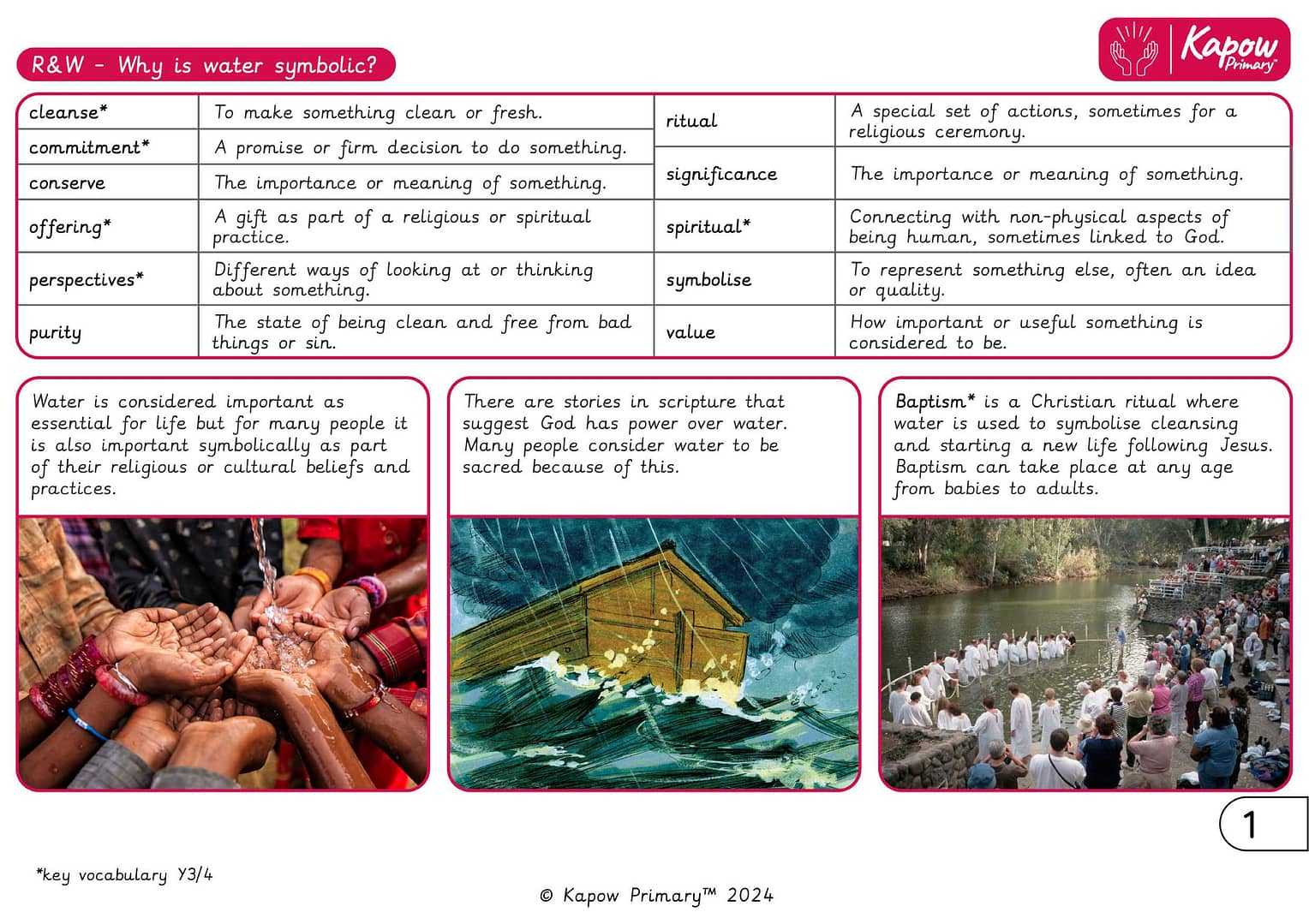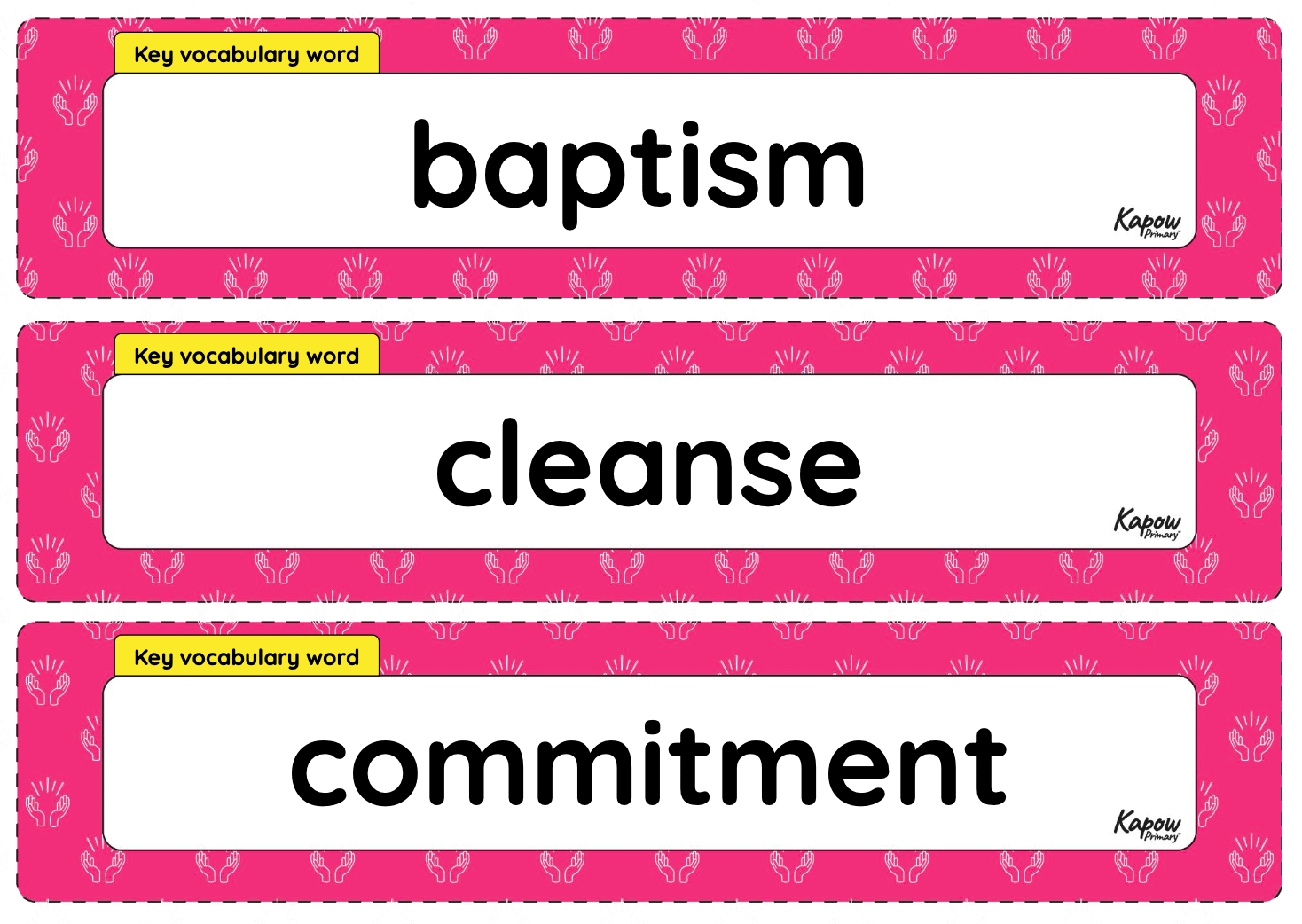Y3/4 (A): Why is water symbolic?
Looking at water's symbolic use and the many ways it is used in religious rituals and ceremonies.
New statutory RSHE guidance is here. We’re creating our brand new RSE & PSHE scheme ready for September 2026. Learn more
- Subjects >
- Religion and worldviews >
- Mixed-age >
-
Y3/4 (A): Why is water symbolic?
Unit outcomes
Pupils who are secure will be able to:
- Making connections between religious stories and the importance of water.
- Identifying how water is used in some rituals.
- Suggesting what water might symbolise.
- Making links between beliefs and actions.
- Talking about why some Christians choose to be baptised.
- Explaining water’s importance in religious and cultural contexts.
- Sharing thoughtful insights or reflections on water’s importance.
- Articulating their own ideas about the value of water creatively.
Suggested prior learning
Lessons
Y3/4 (A): Lesson 1: Why is water important?
- To explore how water is important to life practically and symbolically.
Y3/4 (A): Lesson 2: How is water used in rituals?
- To explore the significance of water through investigating Buddhist and Shinto rituals.
Y3/4 (A): Lesson 3: What can some religious stories suggest about water?
- To analyse the importance of water in some Christian, Jewish and Muslim stories.
Y3/4 (A): Lesson 4: What is baptism?
- To investigate water’s symbolism and role in Christian baptism.
Y3/4 (A): Lesson 5: How and why do some Hindus celebrate the River Ganges?
- To explore the significance of water at the Hindu Kumbh Mela festival.
Y3/4 (A): Lesson 6: Why is water precious?
- To explore why water is considered precious by analysing quotes and actions.
Key skills
Related content
Unit resources

Knowledge organiser – R&W Y3/4 (A): Why is water symbolic?
Aimed at pupils, two pages providing key facts and definitions from the unit 'Why is water symbolic?'.

Vocabulary display – R&W Y3/4 (A): Why is water symbolic?
A display version of the vocabulary from the Year 3/4 'Why is water symbolic?' unit.
Cross-curricular opportunities
English: Writing composition; Spoken language; Reading – comprehension.
Science: Plants.
Geography: Human and physical geography.
RSE: Respectful relationships.
British values: Mutual respect; Tolerance of those with different faiths and beliefs.
Build on the learning
Popular content
- Religion & worldviews: Curriculum portal
- Religion & worldviews: Curriculum information
- R&W: Key skills and knowledge by unit
- Religion & worldviews: Vocabulary progression
- R&W: Transitioning to Kapow
- R&W: Personal development, SMSC and BV
- Webinar: Fieldwork And Your Local Area In Geography
- Webinar: Ace your role as a music subject leader

